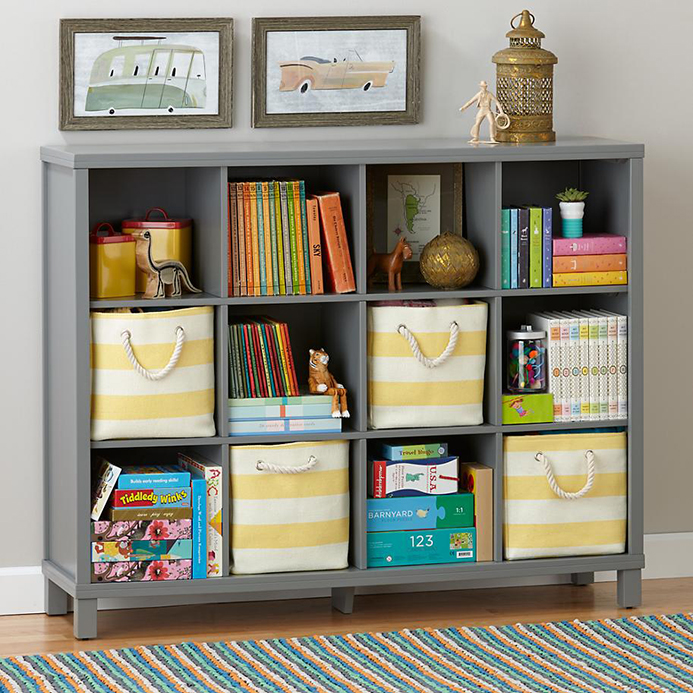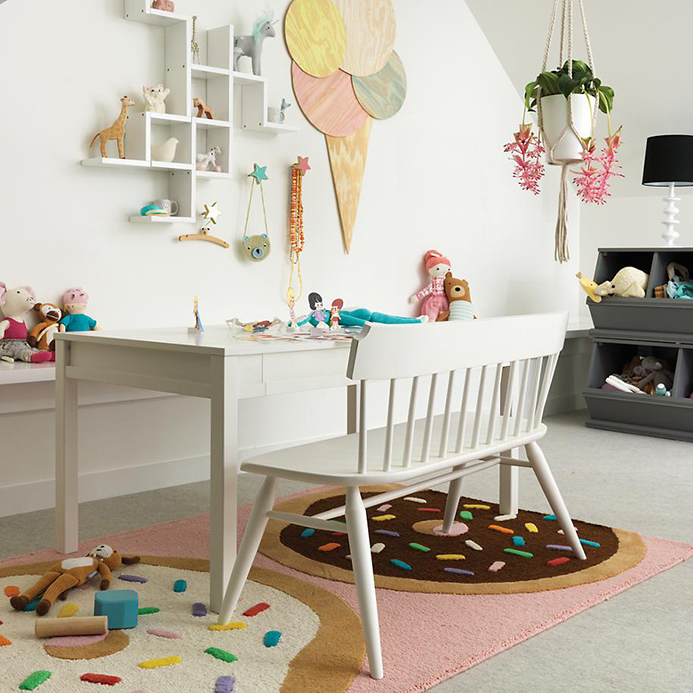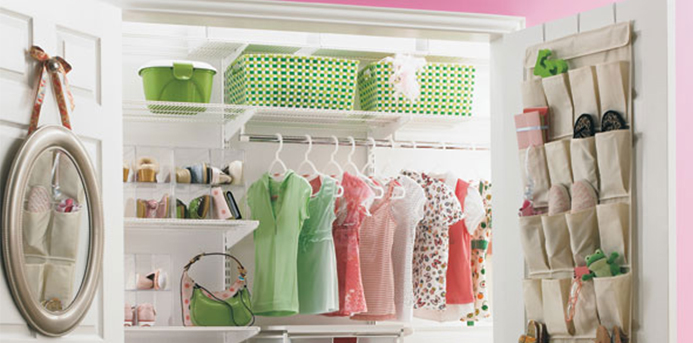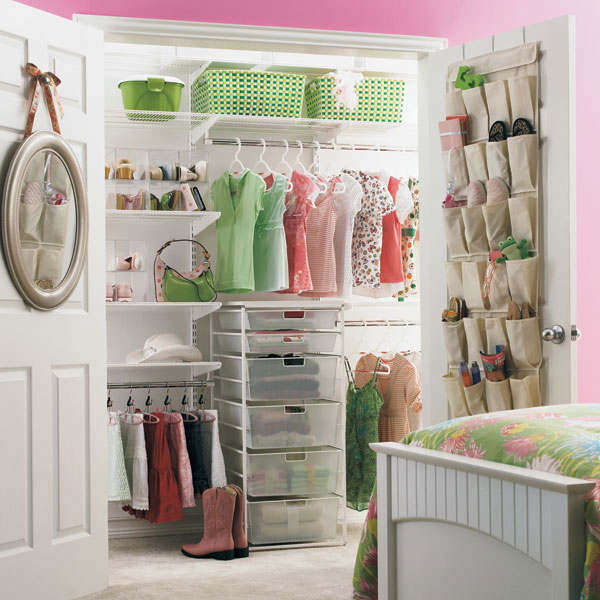Sure, kiddies are cute, but they tend to leave a trail of chaos in their wakes. Tackling that clutter is no easy feat – grown-ups have a hard enough time managing their own messes! Cue the experts. We tapped organization pros for some genius tips on reining in kid-clutter and teaching children good organization habits they can carry into adulthood.
Keep It Simple
White Elfa Girl’s Reach-In Closet, The Container Store
Give kids the tools they need to develop good habits. Annie Traurig, a Seattle-based organizational expert, author and founder of the blog Live Simply says kids are exceptionally good at following a system – if parents provide them with one.
“So often parents complain about children not picking up after themselves, when in reality, there is no obvious way for kids to do this,” she says.
Luci Gutman, organizational expert and founder of Northbrook-based What’s Organized, says you can start by teaching young children to name and categorize things. For instance, instead of just “toys,” think: blocks, dolls and art supplies. Label hooks, bins, baskets and shelves with the respective names of whatever lives there.
“Everything needs a name and a home, “Gutman says.
One Size Doesn’t Fit All

Cubic Bookcase: The Land of Nod, $600
“Children organize differently than adults,” says Gutman.
A number of factors, such as brain development, motor skills and kids’ generally small stature, can make adult systems difficult for children to utilize. Make it easy to put things away by placing hooks, hanging rods, shelves and drawers at kid-friendly heights.
In the playroom use bins and cubbies. Gutman usually prefers lidless versions that are clear or of different colors. And because kids tend to “dump and fill” rather than carefully remove and replace, she recommends leaving bins one-third of the way empty.
Monica Friel, a professional organizer, blogger and founder of Chicago- and Atlanta-based Chaos to Order, says in kids bedrooms you should skip hangers altogether in favor of hooks.
“It’s much easier to get kids to hang something on a hook than a hanger,” she says.
Cull the Herd

Teach children to have a healthy relationship with material possessions. Help kids determine which toys mean the most to them and which ones can be given away.
“If you keep too much, you can’t find what’s really important,” says Friel.
Traurig says to encourage kids to select a few items from their toy collection to donate to a less fortunate child.
“[You’ll] manage the number of toys in your household while instilling generosity and compassion within [your] kids,” she says.
Model Behavior
All of our experts agree that parents must lead by example. “If your own belongings are a hot mess, you’re sending the message that order is not a priority in your household,” Traurig says.
Habits of Highly-Organized Kids
Of course, you can go nuts with your label-maker and buy out The Container Store, but no organizational strategy is going to stick unless kids develop lasting organizing habits. Gutman says the specific products and systems don’t matter or even work, unless you understand the basic tenets of organizing.
“Everyone…especially children, needs to understand how to organize, so they can develop systems that are individualized for them,” she says.
If you love this article, read more here!


